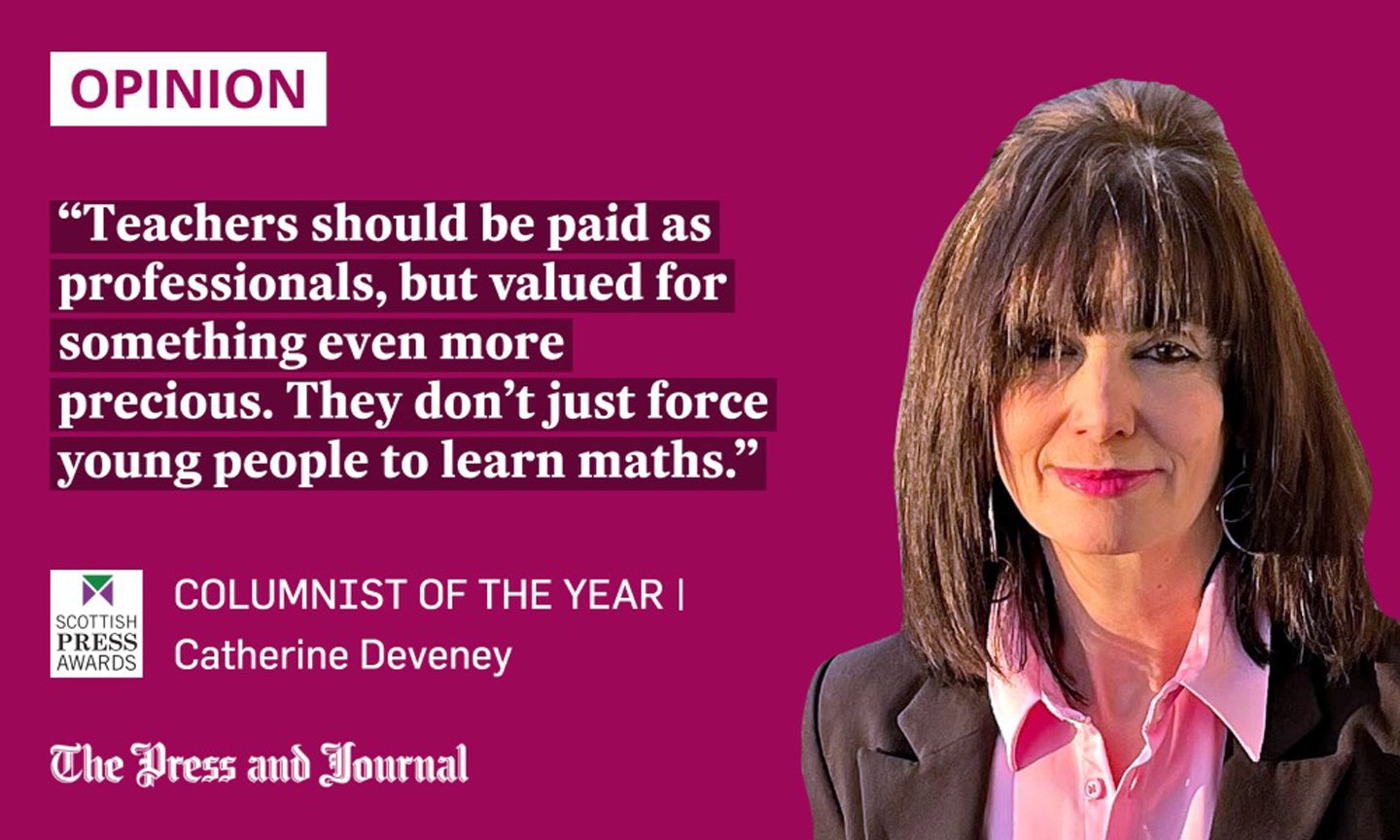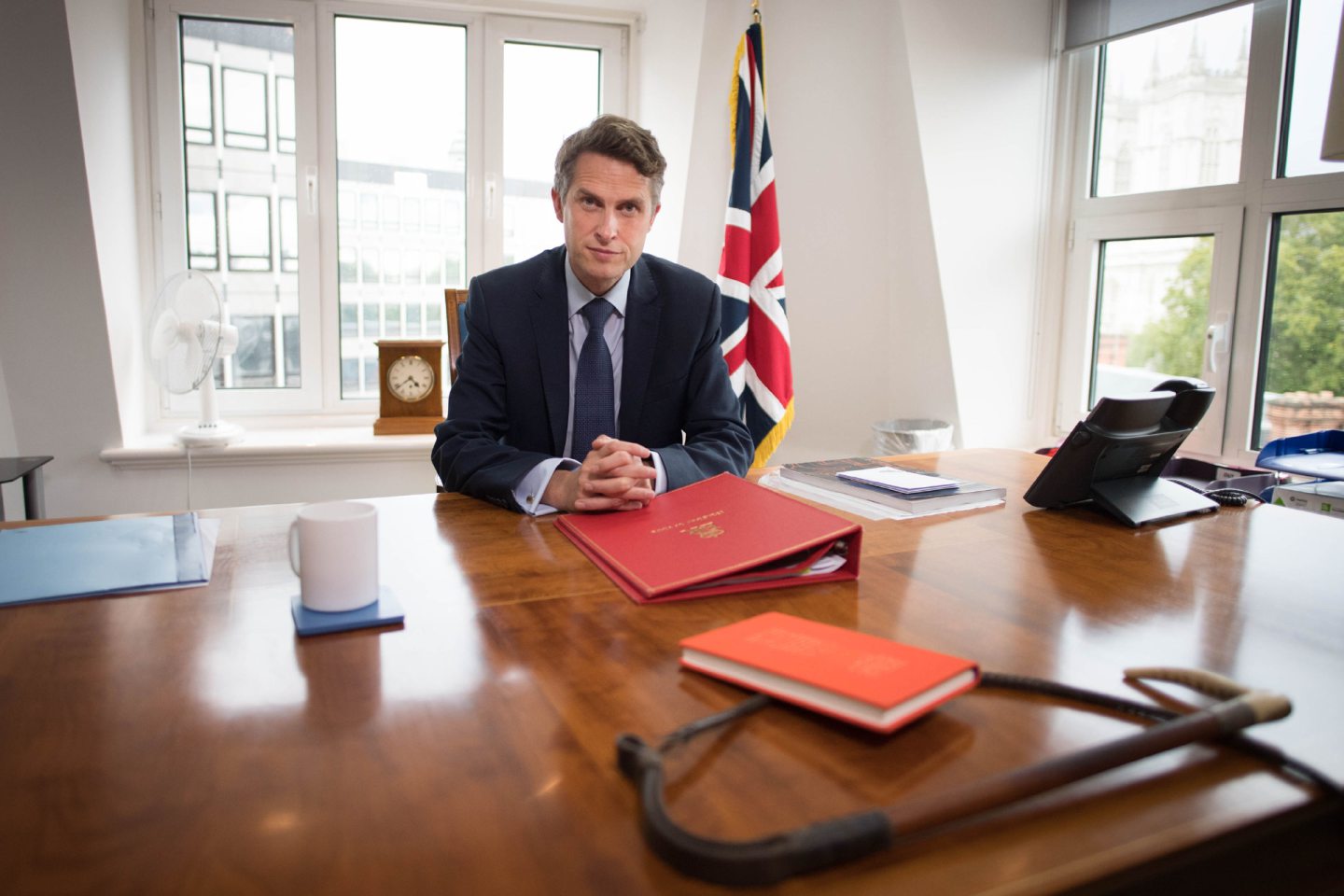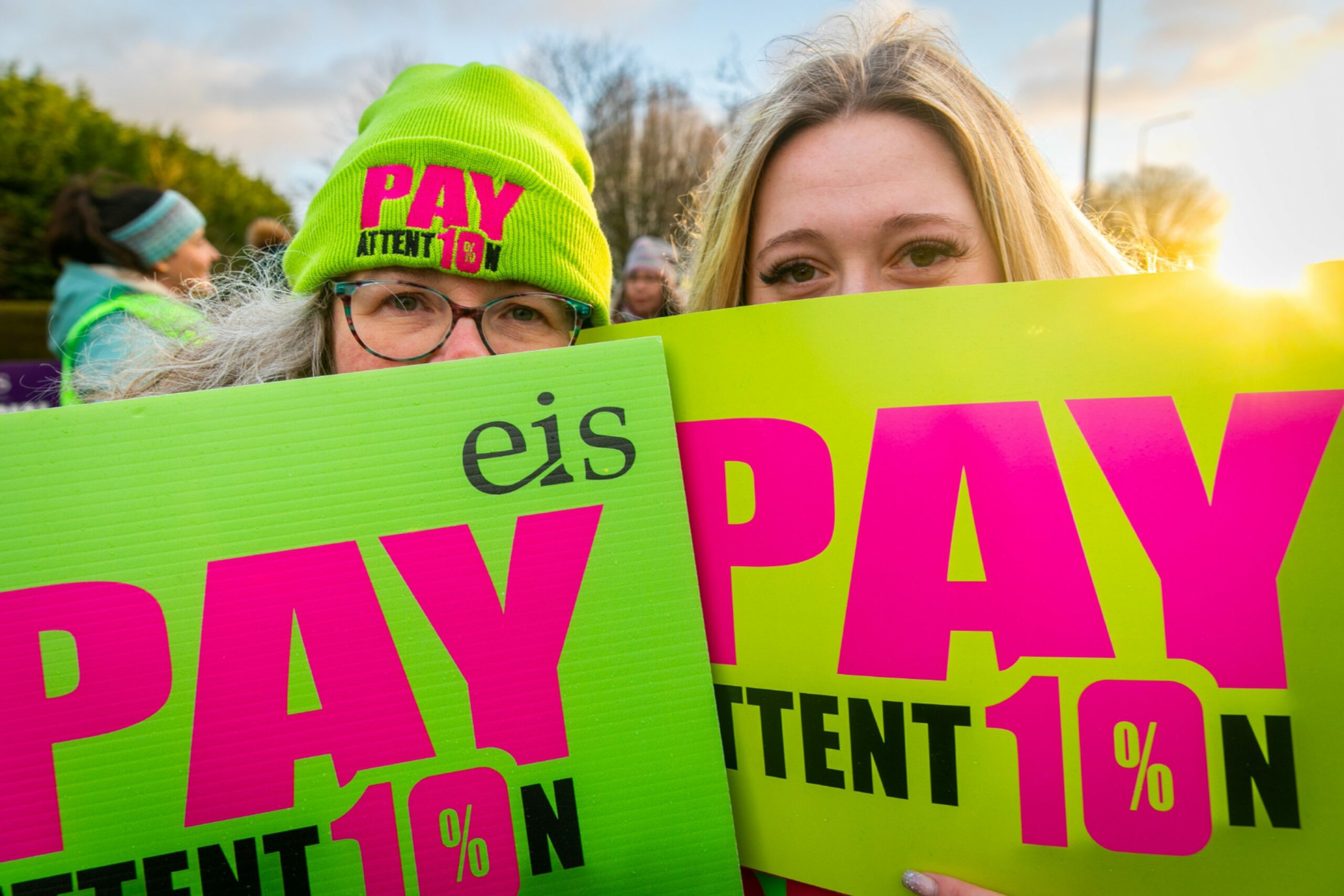In our world, teachers are routinely disrespected and expected to be glorified babysitters, writes Catherine Deveney.
What a relief that UK schools minister, Nick Gibb, clarified his colleague Gavin Williamson’s caustic comments, exposed in internal government emails, about the teaching unions.
Apparently, the saturnine Mr Williamson, then minister of state for education, didn’t actually mean it when he said that the teaching unions “hated work” and were looking for an excuse to avoid it in the early days of Covid. Fooled us!
It was just that thing… you know… that thing EVERYONE does, where they spontaneously write stuff on WhatsApp that they don’t really believe. No? Me neither.
Still, it’s plausible, given we’re talking about politicians. Spouting stuff they don’t actually believe is just part of their inbuilt entertainment system.
The teacher’s ballot on the Scottish Government’s increased salary offer closes on March 10. The offer at least indicates more appreciation than the UK Government has so far shown.
In our world, teachers are routinely disrespected and expected to be glorified babysitters. (Strike? But who is going to look after my Lucy while I go to work?)

Rishi Sunak’s recent assertion that maths should be compulsory until the age of 18 was just another eyebrow-raising theory promulgated by one of those people who consider themselves to be educational experts because they once wore short trousers and attended school. Algebra problems for all.
If X is a politician and Y is an eejit, how many Xs does it take to make a Y? Only one, it seems.
Sunak’s suggestion shows an understanding of education limited to compulsion, one that discounts motivation and aptitude. If a young person can’t count at 16, what is the percentage likelihood that a further two years will make the difference? Answers to the nearest decimal point, please.
We can all learn from the story of Master Moshai
Earlier this year, I read a story that highlights true respect for education and its ability to transform lives. Each morning, in a remote village in West Bengal, 78-year-old Sujit Chattopadhyay opens his doors at 6.30 am, allowing local young people to flood in. They walk and cycle for miles to learn from “Master Moshai”, who teaches around 300 children a year.
In 2004, Chattopadhyay retired from teaching, but immediately felt bereft. Days later, three young tribal girls arrived, having travelled 23km, and begged him to teach them. Master Moshai was thrilled. “I wanted,” he said, “to give back to society in the best way.”
In the context of the current teachers’ strikes, the story is poignant. Not because Master Moshai works for a nominal fee of one rupee and four chocolates for the entire year. His generosity is his choice. Indeed, it is the voluntary nature of that choice that makes it so touching. But you can’t run a country’s education service on voluntary work any more than you can run a health service on “angelic” contributions.
Moshai accepted payment based on his students’ ability to pay. Here, teachers knew society could afford to pay them, but it took strikes to force justice.
The government’s introduction of “minimum standards” legislation to ensure levels of service in key areas limits workers choices, almost implying that strikes are wanton recklessness. Yet, efficient services are not the sole responsibility of workers. They are also the responsibility of employers, though you wouldn’t think it from the political rhetoric.
Removing the effectiveness of strikes is just a recipe for protracted conflict, ameliorating the effects for employers while leaving workers at the mercy of a system that blames them for conflict and takes their labour as a given no matter the circumstances. The improved pay offer may be late, but at least acknowledges some mutual responsibility.
Education inspires, shapes and changes lives
Master Moshai received an award from the Indian Government, the Padma Shri, for services to literature and education. When the local school refused to give him a classroom, he opened up his veranda to teach. But, inspirational as he is, the three young tribal girls, who recognised the opportunities that learning brings and were tenacious enough to pursue them, are also remarkable.
Master Moshai’s pupils are 80% female: young women who recognise how life-changing education can be, and are prepared to fight for it. “I have so much to learn from them,” he said.
The story highlights all the best things about education that we so often taken for granted: its capacity to inspire, its potential to shape lives, its ability to change ideas and values and behaviour and encourage a different view of the world.
Gavin Williamson’s comments were particularly distasteful given the number of teachers who got seriously ill during the pandemic while working in schools which essentially became Covid incubators. Nobody clapped for THEM on a weekly basis.
Teachers should be paid as professionals, but valued for something even more precious. They don’t just force young people to learn maths. Good ones unlock pupils’ aptitudes and open up their horizons. They enable them to believe not just in a subject but in themselves. Those things are priceless.
Catherine Deveney is an award-winning investigative journalist, novelist and television presenter, and Scottish Newspaper Columnist of the Year 2022



Conversation